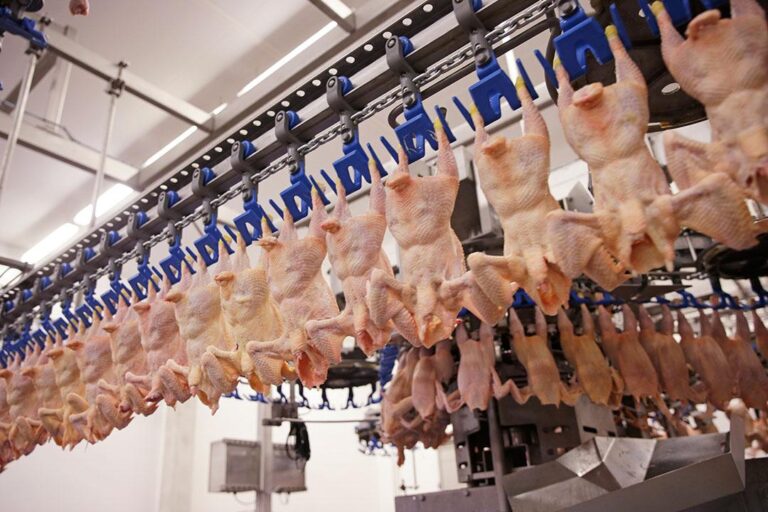Saudi Arabia and Chile have announced plans to resume poultry imports from Brazil, according to official memos obtained by Reuters. The move signals a revival of trade relations following previous restrictions tied to health and safety concerns. As Brazil remains one of the world’s largest poultry exporters, the resumption is expected to have significant implications for the global poultry market and bilateral trade dynamics.
Saudi Arabia and Chile to Resume Poultry Imports from Brazil After Safety Reassessments
Following thorough safety reviews, Saudi Arabia and Chile have officially lifted their previous restrictions on poultry imports from Brazil. Both countries cited improvements in Brazilian food safety protocols as the primary reason for their decision to resume trade. These changes are expected to bolster Brazil’s poultry export market, which had faced setbacks due to earlier concerns over contamination and quality standards. Importers in both Saudi Arabia and Chile have expressed cautious optimism, anticipating a steady flow of poultry products that meet their stringent health regulations.
Key factors influencing the reassessment include:
- Enhanced inspection mechanisms within Brazilian processing plants
- Updated certifications aligning with international safety benchmarks
- Collaborative audits conducted by Saudi and Chilean food safety authorities
These developments not only restore confidence in Brazil’s poultry industry but also highlight the importance of regulatory vigilance in international trade. Market analysts predict that the renewed imports will increase poultry supply and provide competitive pricing benefits to consumers in both countries.
| Country | Import Status | Review Outcome |
|---|---|---|
| Saudi Arabia | Resumed | Improved safety oversight confirmed |
| Chile | Resumed | Compliance with health regulations verified |
| Brazil | Exporter | Enhanced processing standards adopted |
Implications for Brazil’s Poultry Export Market and Regional Trade Dynamics
The reinstatement of poultry imports by Saudi Arabia and Chile marks a pivotal moment for Brazil’s export landscape, reinforcing its status as a global leader in the poultry industry. This development not only restores vital trade channels disrupted in recent years but also signals renewed confidence in Brazil’s food safety standards and regulatory compliance. Exporters anticipate a surge in demand, which could lead to expanded production and increased foreign exchange earnings. For Brazil, this reopening provides an opportunity to consolidate market share, especially as other major poultry producers face their own export challenges.
Regionally, this move recalibrates trade dynamics, positioning Brazil to strengthen ties with key importers while potentially influencing pricing strategies across South America and the Middle East. Key benefits include:
- Enhanced regional supply chains through resumed shipments, reducing dependency on alternative sources.
- Improved negotiation leverage in future trade agreements by showcasing consistent export capabilities.
- Potential diversification of export destinations spurred by renewed trust from Middle Eastern and Latin American markets.
| Country | Pre-Ban Import Volume (tons) | Projected Annual Growth (%) | Impact on Regional Exports |
|---|---|---|---|
| Saudi Arabia | 85,000 | 7.5% | Boosts Middle East supply by 15% |
| Chile | 40,000 | 5.0% | Strengthens South American trade ties |
| Brazil (National) | – | 6.8% | Expanded export footprint & regional influence |
Recommendations for Importers and Exporters to Navigate Regulatory Changes Efficiently
To effectively manage shifting regulatory landscapes, importers and exporters should prioritize proactive communication with authorities and partners in involved countries. Establishing direct channels with regulatory bodies can provide early insights into policy updates, preventing costly delays and compliance risks. Additionally, staying updated with official memos and trade advisories helps businesses swiftly adapt their supply chains, especially when dealing with products subject to stringent safety inspections like poultry imports from Brazil.
Adopting a comprehensive compliance checklist and training teams on evolving standards empowers companies to maintain operational continuity. Leveraging digital tools to track documentation and certifications can streamline cross-border transactions. The table below summarizes key action points for importers and exporters navigating these changes:
| Action | Benefit |
|---|---|
| Regular liaison with customs officials | Early update on regulatory changes |
| Implement digital compliance management | Faster processing of shipments |
| Employee training on new standards | Reduced compliance errors |
| Monitor official trade advisories | Timely adjustment of logistics plans |
In Retrospect
As Saudi Arabia and Chile move to resume poultry imports from Brazil, the development signals a potential boost for Brazilian exporters and a step toward stabilizing global poultry trade routes. Industry stakeholders will be closely watching how renewed trade flows impact market dynamics and supply chains in the coming months. Further updates are expected as both countries finalize regulatory approvals and logistics arrangements.




